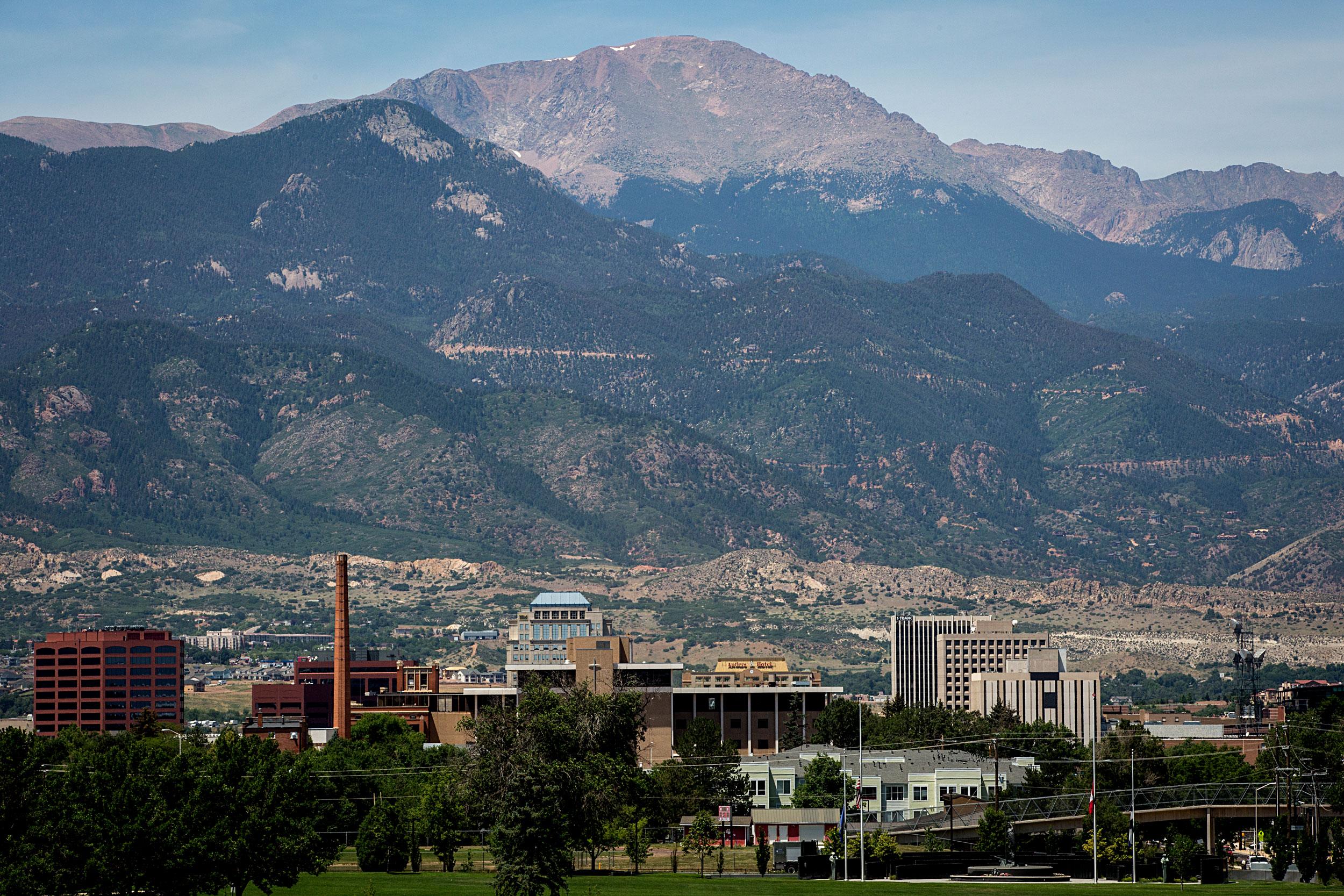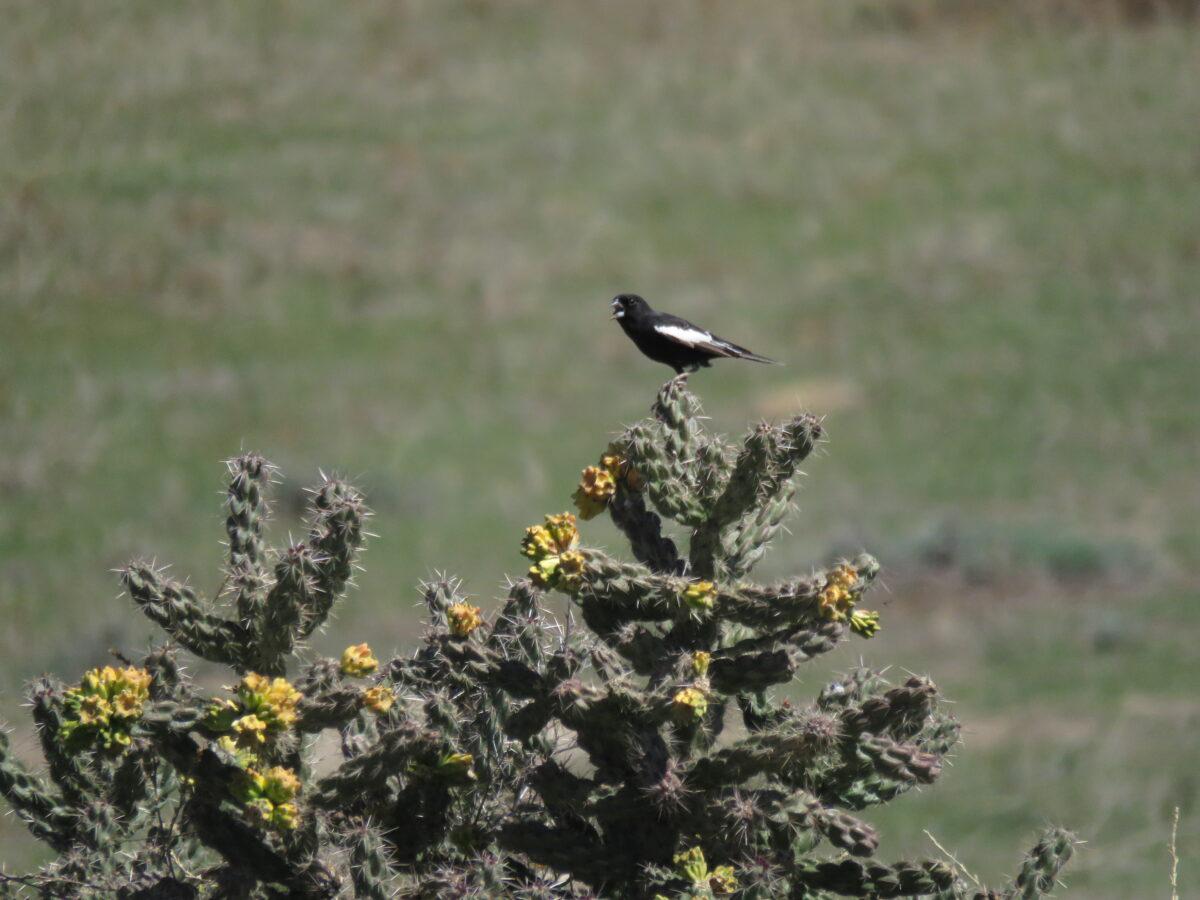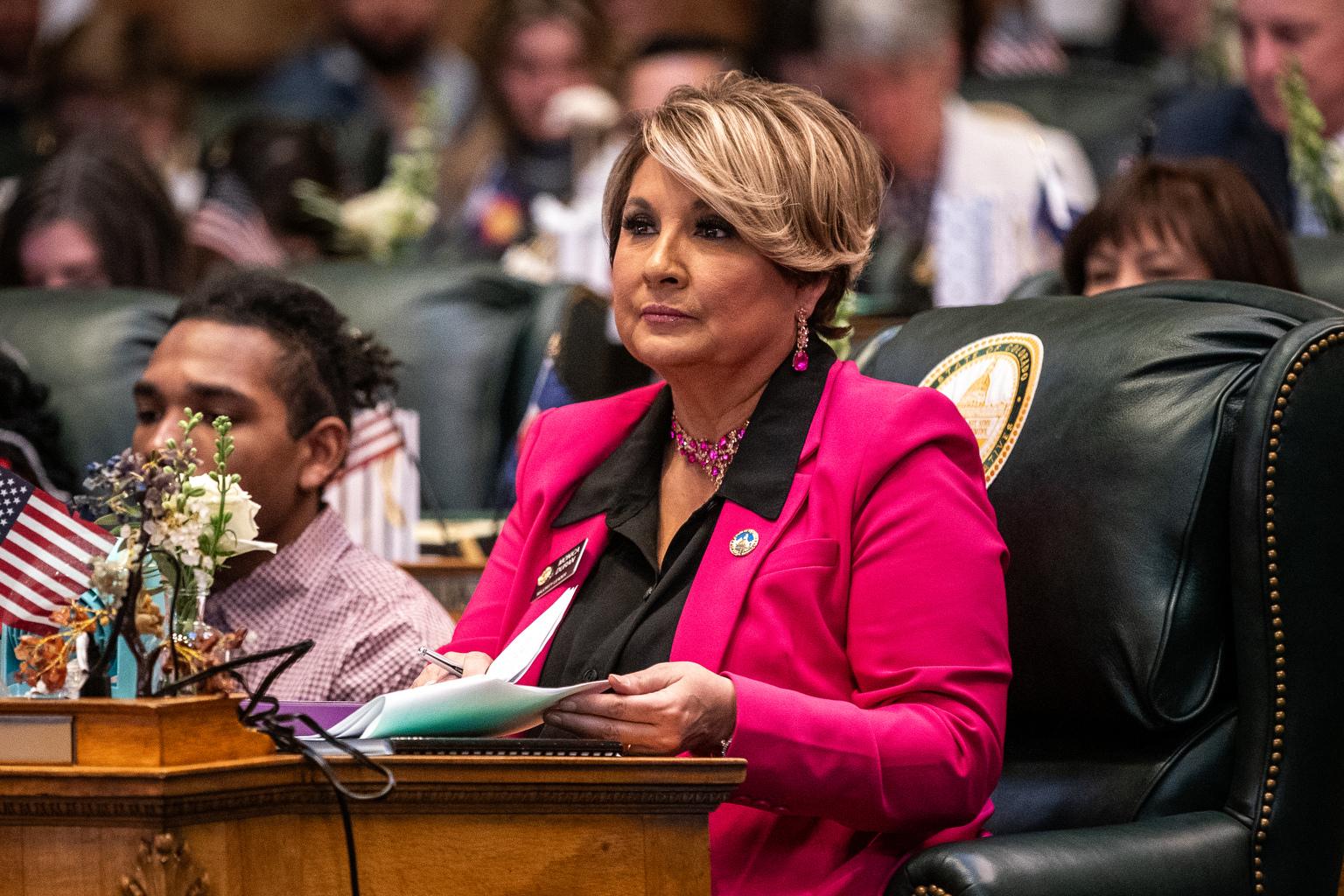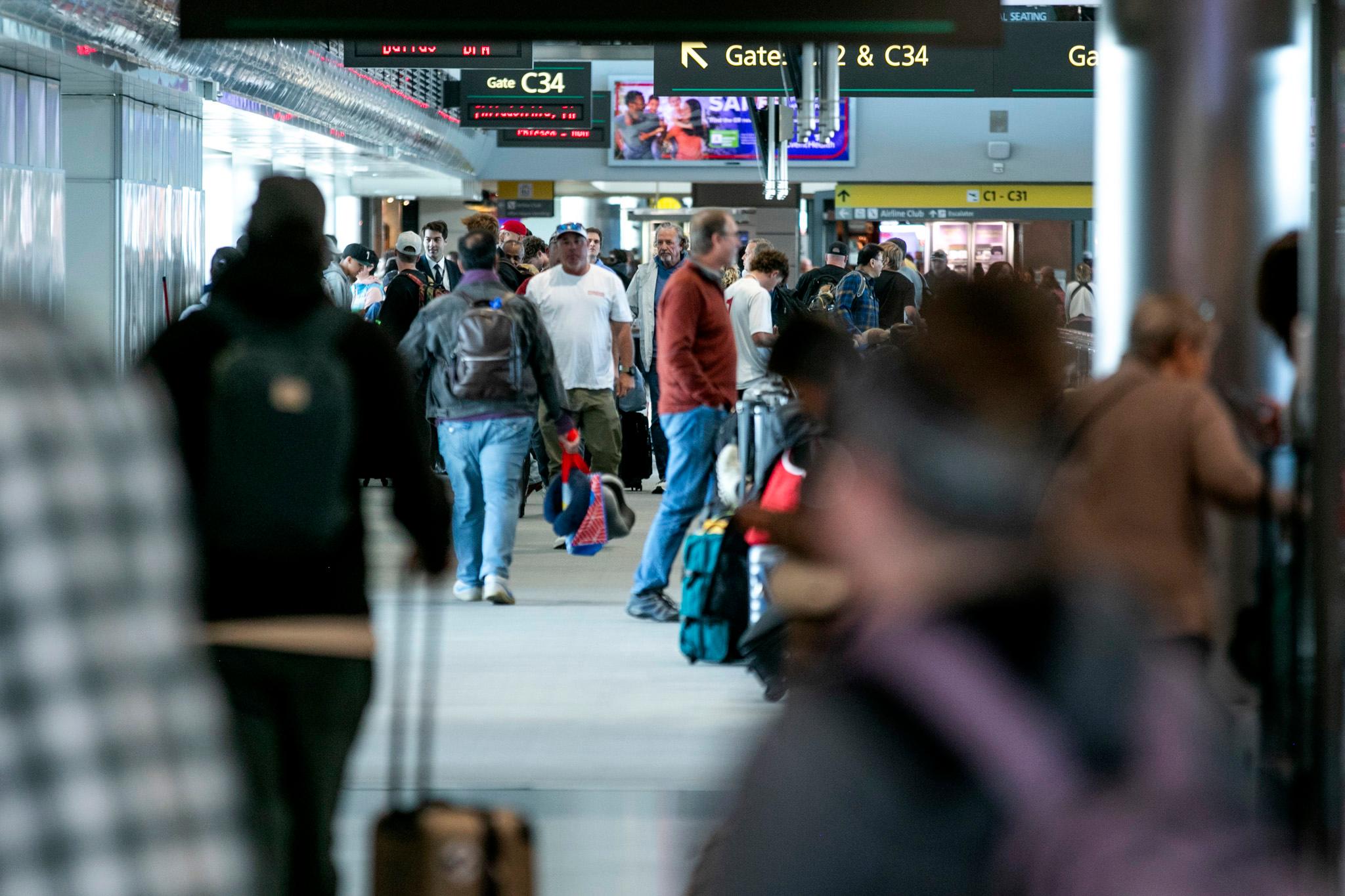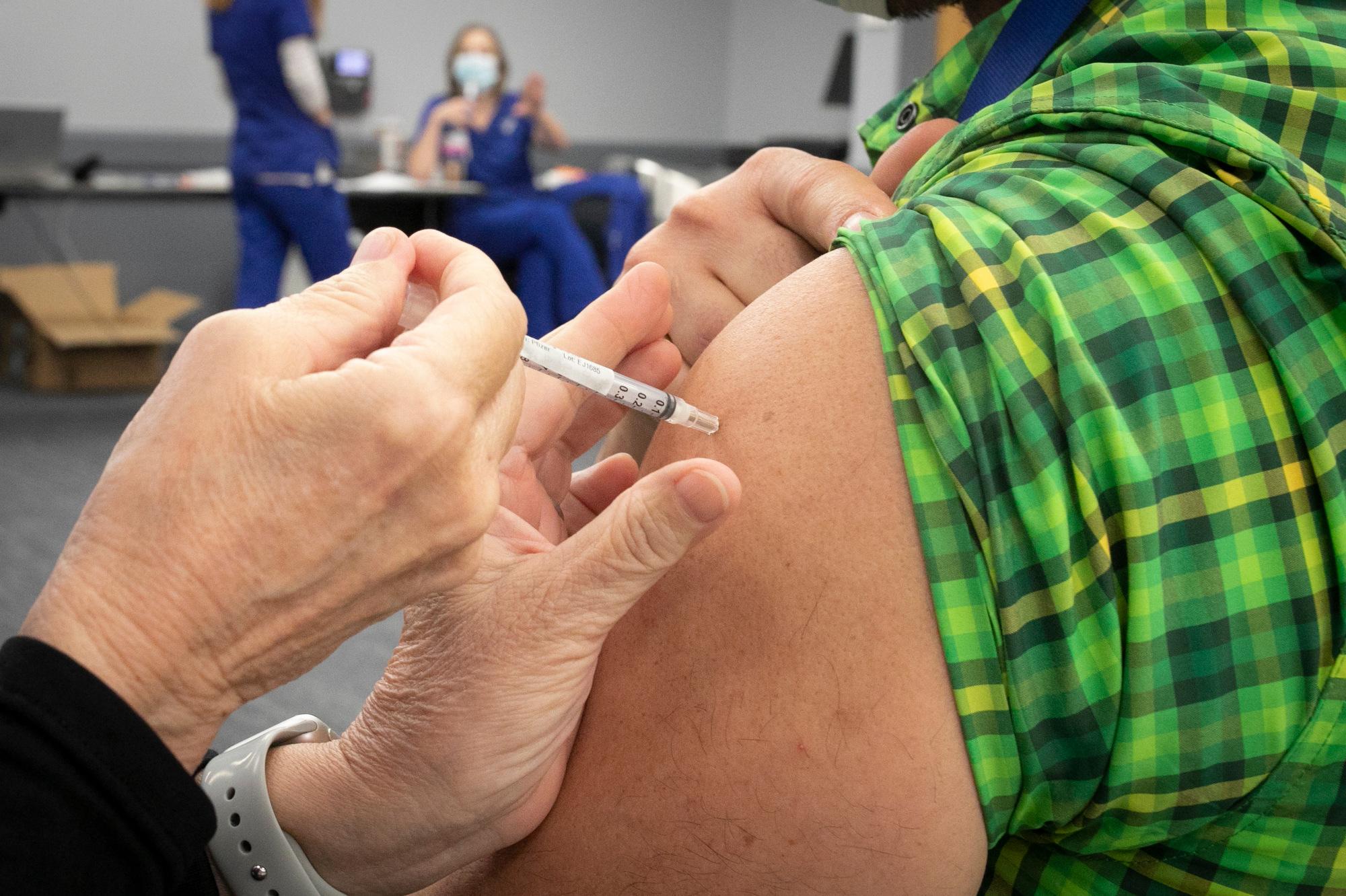
Thousands more Coloradans became eligible for a vaccination against COVID-19 as health officials offered new details Wednesday about the one person infected with a more contentious new variant of the virus.
Gov. Jared Polis announced that he was expanding the second group eligible to receive vaccinations to all residents 70 and older. People that age have made up nearly 80 percent of the state’s deaths from COVID-19.
His announcement touched off a rush by people in the newly added categories who wanted to get the vaccine right away, only to be told that no plans are in place yet for distribution. There also isn't currently nearly enough vaccine on the ground in Colorado to accommodate all the groups Polis declared eligible Wednesday.
Polis also provided new details about the Colorado man who became first in the nation to test positive for a more contagious strain of the virus.
Officials said there is now one confirmed and one suspected case of the new strain in Colorado. Both cases are among members of the National Guard who were assisting a nursing home in the small town of Simla in Elbert County where all 26 residents, and 17 staff members, tested positive for the commonly occurring strain of COVID-19.
“That investigation is ongoing, and we are exploring all possibilities,” said Rachel Herlihy, the state’s epidemiologist.
The residents of the facility are not believed to have the new variant of COVID-19. Four of the residents have died.
What we know about the new COVID-19 variant
The confirmed case with the “B.1.1.7 variant” is a man in his 20s with no recent travel history. He is isolating at home in Arapahoe County. The second suspected case is isolating at a hotel in Lincoln County. There were six total National Guard members assisting the facility.
Since the variant was first detected in Colorado Tuesday, it has also been found in Southern California and is likely spreading elsewhere in the U.S.
The variant of COVID-19 is believed to be up to 71 percent more transmissible, and has led to shutdowns in southeast England, including London.
“It doesn't seem like it's more deadly,” said Dr. Eric France, the state’s Chief Medical Officer. “The worry, of course, is that if it's spreading faster and more people have it ... this could be overwhelming for our healthcare systems.”
The confirmation of the more infectious strain of COVID-19 adds urgency to vaccinations. And Gov. Jared Polis said the state is asking to pause visitations to nursing homes while vaccinations are rolled out.
“We're requesting today, given the detection of the variant in Colorado, that the Centers for Medicare and Medicaid Services allow us to temporarily pause visitation for nursing homes for the time being so that that population could be vaccinated quickly,” Polis said.
Essential workers, people 70 and older are now eligible for vaccinations
The governor also announced that vaccinations have moved to a new phase in Colorado. Once a community's frontline health workers and nursing home residents and workers are vaccinated, they will be available to anyone 70 years of age and over and essential workers like teachers, grocery workers and field journalists.
Adding people 70 and older to that group comes after the CDC recommended moving up people 75 and older. Polis said he decided to expand the Centers for Disease Control and Prevention’s recommendation.
“Over 78 percent of COVID deaths in our state are people age 70 and older,” Polis said. “And now people age 70 and older will have the opportunity to begin getting vaccinated, protected in the next few days.”
Details on how, when and where the new groups will get inoculated were not released, and Polis's announcement, while hinted at since last week by officials at the state health department, still caught many local health officials by surprise.
Meagan L. Hillman, public health director for Prowers and Kiowa Counties and the president of the board of the Colorado Association of Local Public Health Officials, said many in local public health did not yet have plans in place to handle such a massive expansion of eligibility for the vaccines.
"We have had little time to plan for these changes," Hillman said. "The message from the governor today implied that one can come on in and get vaccinated. We need a little bit of time to plan and to make sure that those in Tier 1A (frontline medical workers and nursing home residents and staff) have had the opportunity to receive the vaccine."
Polis said that he expects vaccination clinics to ramp up at job sites for essential workers, like schools or grocery stores, within days or weeks. Other details are still to come.
The phones started ringing at UCHealth shortly after Polis made his announcement, but they had little information to offer callers.
"I'm sure people are very frustrated right now, just because I think they thought, 'well, here we go,' " said Dr. Michelle Barron, senior medical director of infection prevention and control at UCHealth. "I think that intent is to obviously have that available as soon as possible, but it's going to take a little bit."
Colorado's first allocations of the vaccines included about 150,000 doses of the two available vaccines, enough to inoculate 75,000 people - fewer than half of the estimated 183,000 inpatient health care workers and 47,000 residents of nursing homes included in group 1A.
But some counties had moved ahead to begin inoculating people in category 1B, including emergency services workers.
Expanding category 1B of the state's vaccination distribution plan to include everyone over 70, plus teachers, other health care workers, grocery store employees, frontline journalists, state employees and others deemed essential, adds at least 500,000 people, and maybe more than 1 million based on state estimates included in the original vaccine distribution plan and the census.
Still, Polis was confident Wednesday of his ability to get it done, if he can get the vaccine.
"Everything's dependent on what we get from the federal government, but we're expecting that...starting this week we'll be able to complete that vaccination of 70 and up in the next four to five weeks," Polis said.
The slow pace of vaccinations alarms health officials
Much remains unknown about the new strain, but the current vaccines are expected to protect against it. Attention then turns to getting the vaccine out as quickly and widely as possible, and so far public health experts are alarmed by the slow pace of vaccine distribution in the U.S.
The CDC reported on Dec. 28 that there have been 2.1 million vaccinations, representing the first doses of a two-dose regime for that many people.
In an opinion piece for the Washington Post, Leana Wen, an emergency physician and public health professor, wrote it would take 528 million doses (the approved vaccines require two doses) to achieve herd immunity.
“At the current rate, it would take the United States approximately 10 years to reach (herd immunity),” Wen wrote.
Through Wednesday, about 82,000 people have received their first dose in the first two weeks of distribution in Colorado. At that rate, it would take the state more than two years to inoculate every adult in the state, but Polis said he was pleased with the pace, which he said was among the best in the nation, and he expects it to improve.
“We're very proud of that,” Polis said. “We want to build that lead. We want to be number one. And as more Coloradans receive vaccines we're nearing the point where in a few months, by late spring, early summer, the risk will be substantially lower.”

